Reverse Osmosis: Why I Need One
Reverse Osmosis water is something I think you may want to know about. We often set our priorities based on our life experiences. I’ve been a proponent of food and water storage since I was a teenager. I saw the empty store shelves for an extended period during a severe ice and snow storm while living in Chicago. Las Vegas is where I grew up and my parents had a five-gallon water dispenser in our kitchen due to the poor water quality there.
Please note, I purchased this unit myself and these are my opinions, I love it!
My concerns about municipal water quality came to a head when we lived in Farmington, UT. Our tap water had a yellow-brown tint to it when you filled the sink. We asked around and the neighbors’ water looked the same. I decided to take a sample to the city offices to get some answers. We were told the water was tested often and found to be fine.
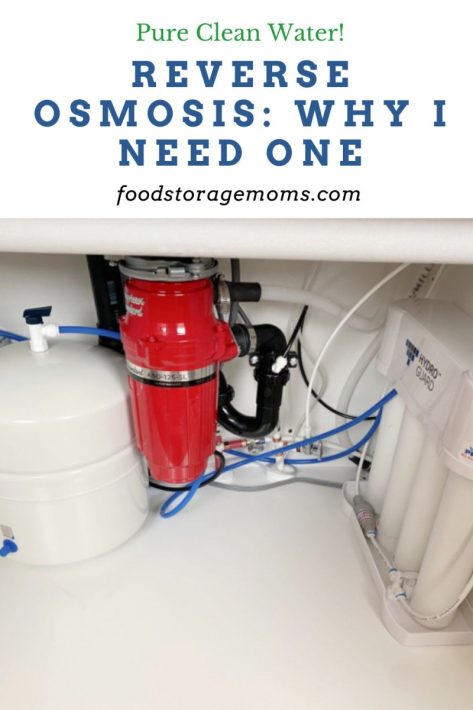
We didn’t trust their answer and purchased one of those five-gallon water dispensers for our home. On my own, I took a mental survey of our subdivision and realized that about every third home had a resident dealing with cancer. When I went to work at a small community bank there it didn’t take long before I noticed that more than half the staff were dealing with health issues, including cancer. That community had water quality issues but they weren’t willing to recognize or deal with it.
With all the media attention regarding the lack of water resources and the poor quality of water in many areas, I decided to write about reverse osmosis and why I need one in my home.
Reverse Osmosis Filters
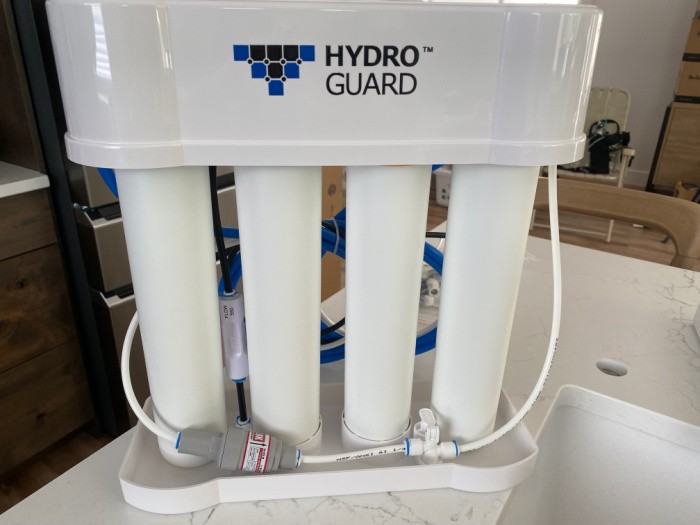
Reverese Osmosis Tank Ready To Install
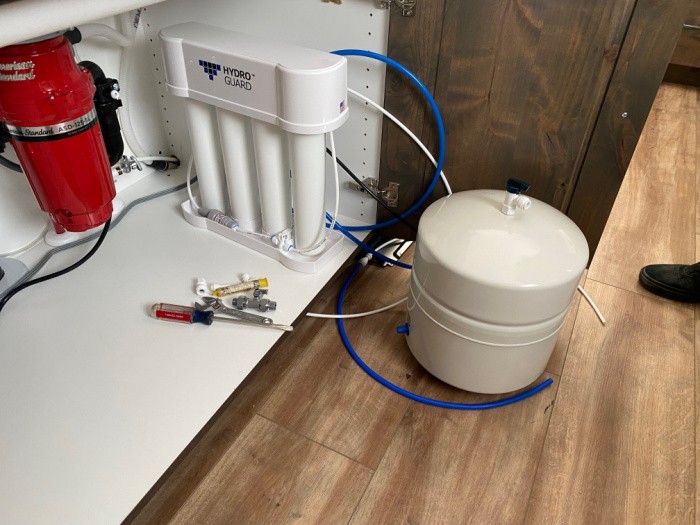
Reverse Osmosis Ready To Go
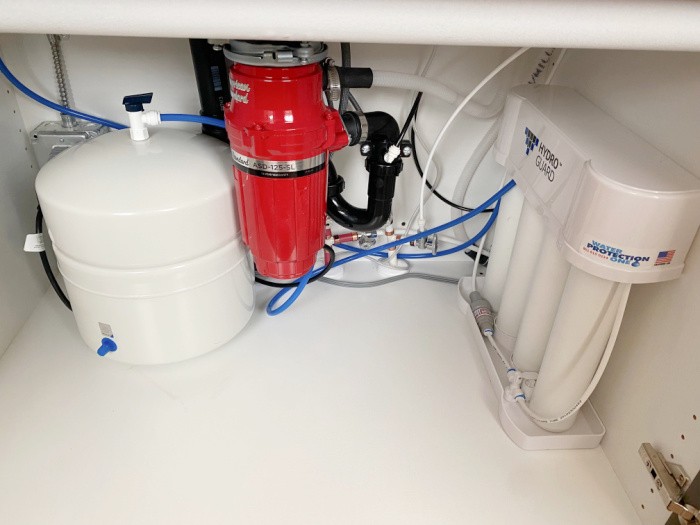
Bottled Water: Is It Safe to Drink?
What is Reverse Osmosis?
Reverse osmosis is a water filter system that is activated by the pressure in your water system. It involves a series of filters designed to remove sediment, contaminants, and other particles in your tap water. One of those filters is a semi-permeable membrane with a very small pore size of approximately .0001 microns. The membrane lets regular water molecules through but larger contaminants are too big to pass through and are caught or trapped. I like reverse osmosis for water filtration since it removes up to 99.99% of contaminants. The system doesn’t rely on chemicals like chlorine and chloramines most often used by public water providers.
What Kinds of Things Are Removed from Water by Reverse Osmosis?
Depending on the system you purchase, the filtering system can remove bacteria, viruses, lead, nitrates, mercury, and other particulates. Note that chlorine can also be removed from the water, so if you’re used to the taste of chlorinated water, you’ll notice a difference once you change to reverse osmosis-treated water.
This treatment system can also remove many healthy minerals in tap water, like calcium, magnesium, and potassium. Some reverse osmosis system providers offer a remineralizer that adds back those minerals, restoring water’s health benefits and natural taste. Water treated by reverse osmosis tends to have a lower PH rating than non-treated water. PH is a factor that rates water’s acidic versus alkaline content and can affect the taste. As long as the pH is between 6.5 and 8.5, the Environmental Protection Agency says it’s fine to drink.
What Other Benefits Are There From Using Reverse Osmosis to Treat My Tap Water?
There are several benefits of using reverse osmosis:
Convenience: If you find yourself running to the store, especially during the hot summer months to get bottled water to drink yourself or for your guests, you’ll appreciate the convenience of drawing water from the faucet on your counter dispensing the “clean” water. You don’t have to find a place to store the water either, it’s right there at your fingertips.
Cost Effective: by not having to shop for bottled water to get water you feel comfortable drinking, you save on the cost of the water. Yes, reverse osmosis systems can be pricey upfront, but over time you see the cost-benefit of having your own water treatment system built in.
Environmentally Friendly: our landfills, streams, rivers, and oceans are filled with plastic waste of all kinds, including plastic bottles. It is estimated that 8 million tons of plastic trash find its way into the oceans of the world every year! That’s a lot of plastic. Although most municipalities promote recycling, including plastic water bottles, only 20% are placed in recycling systems.
Ease of Installation: Yes, there’s some plumbing involved in the installation, but the number of fittings and connections is minimal. Most handy individuals can install the unit, but your distributor will generally install it as part of the purchase or for a reasonable fee.
Our Reverse Osmosis System
As part of our project to build our new home in South Jordan, UT, we researched and found a great company, Water Protection One out of Woods Cross, UT, that sold and installed our Hydro Guard Reverse Osmosis System. They were very professional when outlining our options and the related costs, timely with the installation, and competent in their work.
The Hydro Guard system has several valuable features:
- A designer lead-free faucet that is attractive and durable.
- Includes a Shok Blok filter protection valve if the water pressure exceeds specifications.
- There is a large 4.5-gallon treated water storage tank.
- The National Sanitation Foundation (NSF) has certified the production materials as safe.
- The Flowlok leak detector shut-off valve automatically shuts the system down if a leak is detected.
Final Word
Good clean water is an essential part of any emergency preparation plan. You need water for proper hydration, cooking, personal hygiene, and limited laundry during an emergency. For your hydration and cooking needs, reverse osmosis is a proven way to have quality water for consumption at your fingertips. We’ve had a system in the last three homes we’ve owned, and wouldn’t ever do without one. Let me know your experiences with reverse osmosis systems so I can share your input with my readers. Thanks for always listening and doing what you can to prepare. May God Bless this world. Linda

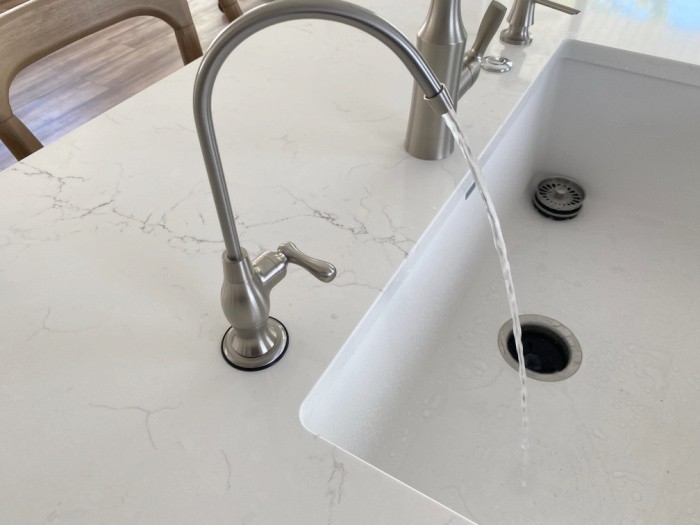

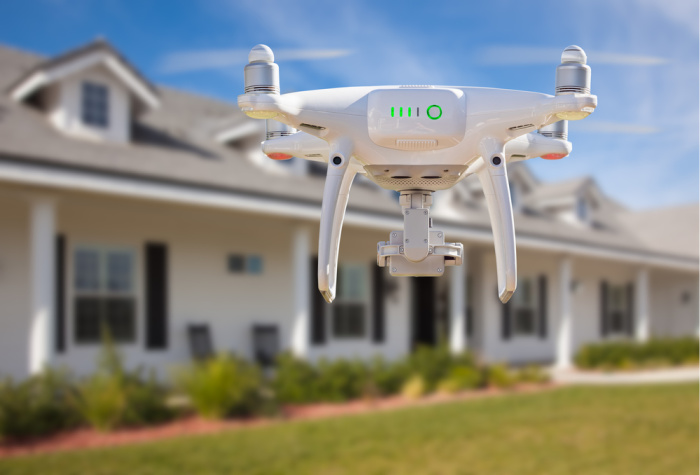

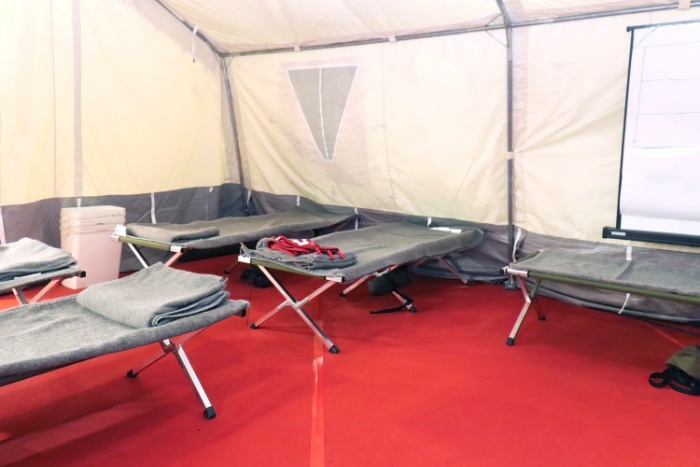
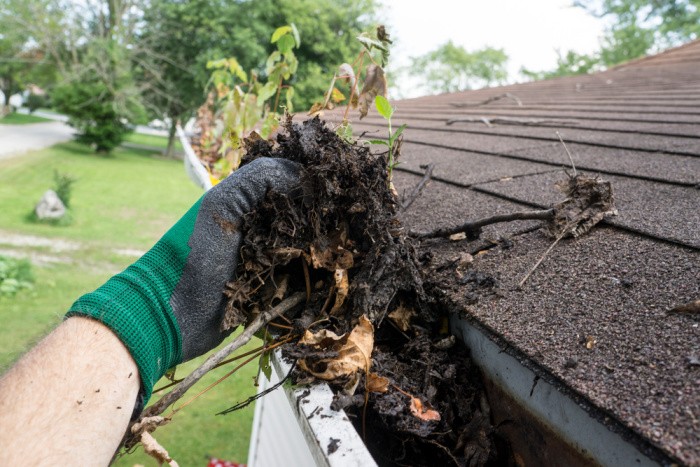

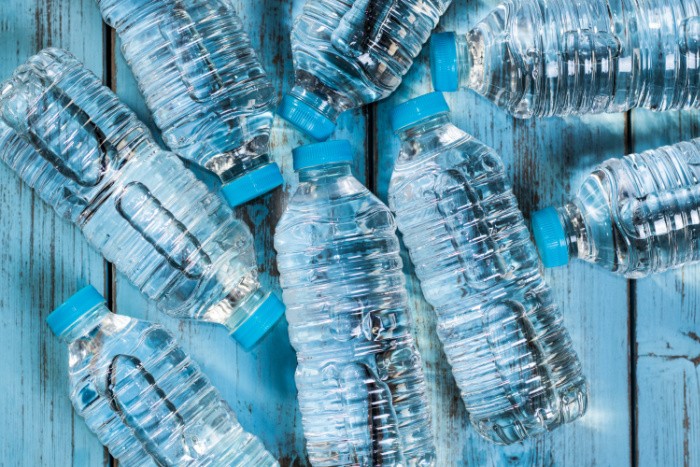

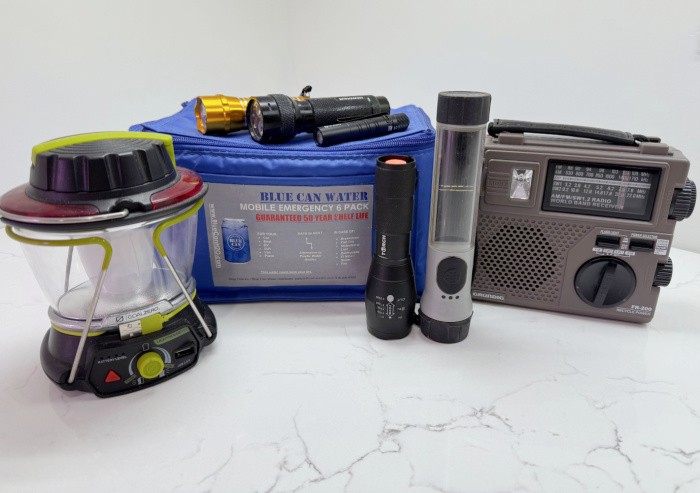
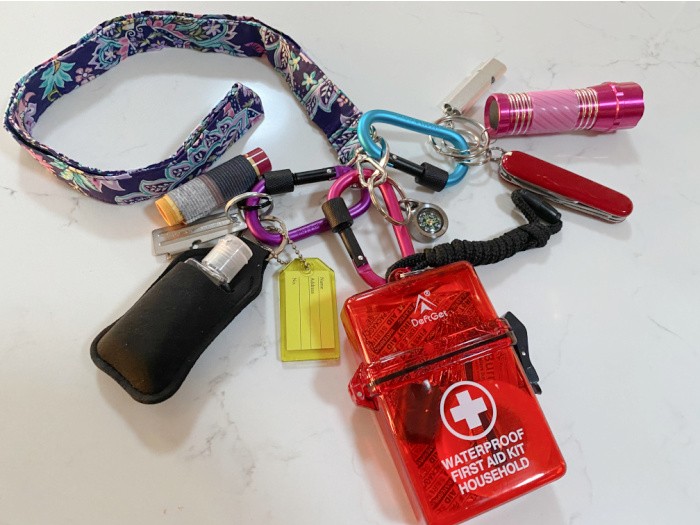










We are so happy we had one installed 16 years ago in the kitchen. Knowing how it will filter our water makes us feel safer. Use this water for drinking, for anytime you cook, and if you wet a paper towel to cover food for the microwave. One tip that our serviceman told us, is every week pick the same day of the week and let water run out of your faucet for it at least 2 minutes to clear out the tank.
HI Barb, oh my gosh, I think that’s about the time I got one. I had never heard about them. We had a water softener installed and when I made the appointment, the woman on the phone said have you ever thought about “Reverse Osmosis”? I’ve never looked back. It was the best decision I ever made. I love that you shared your story, thank you! I love the tip, too! I will start doing that, thank you, Linda
Hi Linda,
The wells on the island where I live have been compromised with salt water for 50 years or so. Dig into our yard at high tide and you get water that is brackish. The island does have “city” water and has for 40 years. There was only cistern water on the island until sometime in the 1960s.
Our water plant is RO. Sadly, they added flouride a few years ago. Nobody out here waters lawns. The water is not cheap by American standards.
The problem with all of these big systems is what to do with the salt? Can’t dump it into the Gulf or ocean as the increase in salinity would kill everything. One group of geniuses near Tampa decided to do deep well injections. They said there was an aquifir that was available and that it would NEVER leach the salt into the fresh water aquifirs. They did it. In a short time, those fresh water aquafirs were breeched. Once salt gets into them, that’s it for that water forever.
You don’t have that problem, but for many who live on coasts, R/O is a must. There are always downsides.
What many do not realize is that standard filters do not work with salt water. Berkey filters and that sort come to mind. I have Berkey filters for when our water is out. Great for the rain barrels. Without electricity, there is no R/O. After Ian it was a week or so before we got any water and then it was 3 hours/day. They had to barge out a diesel tanker to get the generators going to make some water. The only road to the island washed out.
When your power is out, how do you run the R/O plant in your house? Generator? How much power do they use? Something for people to think about when/if their city water stops flowing. City water flowing with no electric? You’d still need some form of filtration or boiling, wouldn’t you?
With the active cyberattack threats, our water and electric systems are in jeopardy.
Hi CAddison, the three RO systems I have used do not use electricity. Its water pressure. It the water systems shut down the entire city we will be without water. So we must have other water. Which we do. If the city water pressure goes down we will have to use our other water. I will NOT drink the city municipal water ever or cook with it. You are so right about our water and power systems are in jeopardy. We have so many water boils in Utah, it’s embarrassing. Who is in charge, I just shake my head. You have had so many experiences, thank you for sharing them. Linda
Hi Linda.
I want to interject another point here re pure drinking water. For over 30 years now, we’ve been using a Waterwise distiller machine (https://www.waterwise.com/) (out of Leesburg, FL) to purify our drinking water. I learned about these after attending some seminars at Hallelujah Acres in Shelby, NC years ago. These distillers might be another safe choice that people can use since they easily fit on a kitchen countertop. The machines can distill a gallon of water every 4 hours, are reasonably priced & easy to use. We love ours & are constantly refilling & distilling daily, several times. This is our 2nd machine now in over 30 years. We keep previous batches of distilled water in BPA free bottles in the fridge and in gigantic 3 or 5 gallon BPA free bottles for prepper storage. I am constantly working on increasing our prepper water storage supply in this manner. I just thought I’d put in my two cents about clean, clean water!
Hi Janet, oh my gosh, I have never heard of this Waterwise distiller machine. Could this water be used for CPAP’s? I remember a few years ago I picked up distilled water for a friend when there was a shortage of it. Thank you for sharing this link because it sounds amazing. Thank you my friend, I love this! Linda
HI Janet, would you please look, it says the Legacy Distillers are no longer available. They only sell parts, not sure. Linda
I have never used any of the Legacy distillers, so can’t speak for them. I’ve only purchased & used the 3200 model for over the last 30 years. Also, I do not know the answer to your CPAP question. Perhaps a call to Waterwise would bring you an answer. Hope this helps.
Hi Janet, thank you, if a reader uses a CPAP and wants clean water this would be a good question to ask. RO water cannot be used in CPAP units according to my SIL. Thank you, Linda
We have used water distillers for almost 40 years. When we were looking to purify our well water, reverse osmosis was not an option due to whatever was in our water would ruin the filters. Family of 7 & survived with a counter top model, ran a lot! I’ve carried my own drinking water to work before it became the norm.
PS I checked out the website for Waterwise distillers, I took it as meaning the counter top models are available, but not the floor stand models
Hi Jacqueline, I wondered if it was just the floor stand models. Thanks for letting me know, I’m trying to get tomorrows post ready to go out in the morning. I’m overjoyed to hear there are other options for people to have clean/pure water! You’ve been using them for 40 years, oh my gosh, that is wonderful! Linda
What suggestions do you have for those of us who have wells? I’ve been thinking of getting a hand pump installed outside but need to look into the cost. Most of the homes around me are on wells. Fortunately we are also near a small river so if nothing else we can get water and filter it ourselves. Let’s hope we don’t get to that point!
Hi Carol, my sister lives in Texas and has a well and she has a Reverse Osmosis system in her kitchen. You will need a hand pump if your well is driven on an electric pump. I have never had a well, so I’m not the person to ask, I’m so sorry. As far as the river, the thing that scares me about the river is if a disaster happens will the river redirect somewhere else. Plus, do you want to be going out to the river to gather water. It’s wonderful if you have a way to purify the river water but first and foremost have water in your home. In my opinion, I need water inside my house now, I just moved into out small home and I have water under my bed, and water lined up 4 feet tall across a whole wall. Most people wouldn’t do that. It’s how I roll, I will not be without water. The next thing is filling my 250 gallon tank and two 160 gallon tanks for the garage. But the garage isn’t ready for me, am I stressed out about it, yes I am. But at least I have water in the house for now. I hope this helps, Linda
We have very hard water. I’m almost surprised that when we turn on the faucet that liquid comes out instead of a bunch of minerals. I also have a genetic tendency to grow kidney stones. While I have not passed a stone in the last 10 years, my doctor has been keeping an eye on the larger number of stones I am growing. A long story shortened, based on two ultrasounds, I went from having a very large garden of kidney stones to none between Feb and May of this year The only change in my life was the addition of a RO system under the sink in my kitchen. Hubby got the system from Amazon for under $200 and it was some of the best money we have spent. I don’t think that very hard water causes kidney stones in everyone, but that it can in people with a genetic tendency to get kidney stones that it can. Since these under the sink systems are less expensive than the procedure to blast kidney stones, for those of us who tend to have kidney stones they are well worth the money to get one.
Hi Topaz, wow, that’s the best $200 ever spent if it kept you out of the hospital! I’ve heard kidney stones hurt worse than giving birth to a baby! I love hearing you have had a break from them, even if it’s a small one. Great comment, Linda